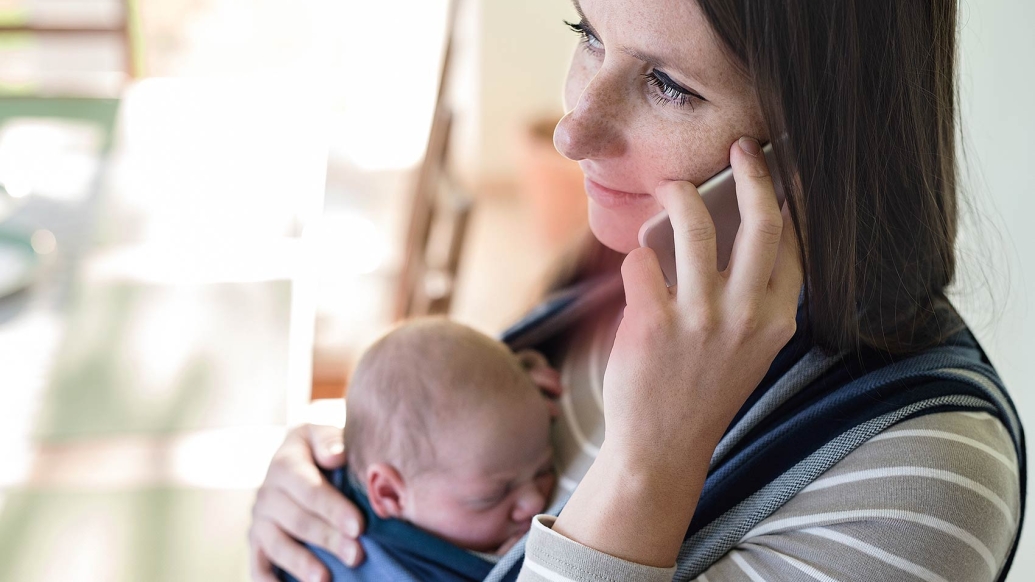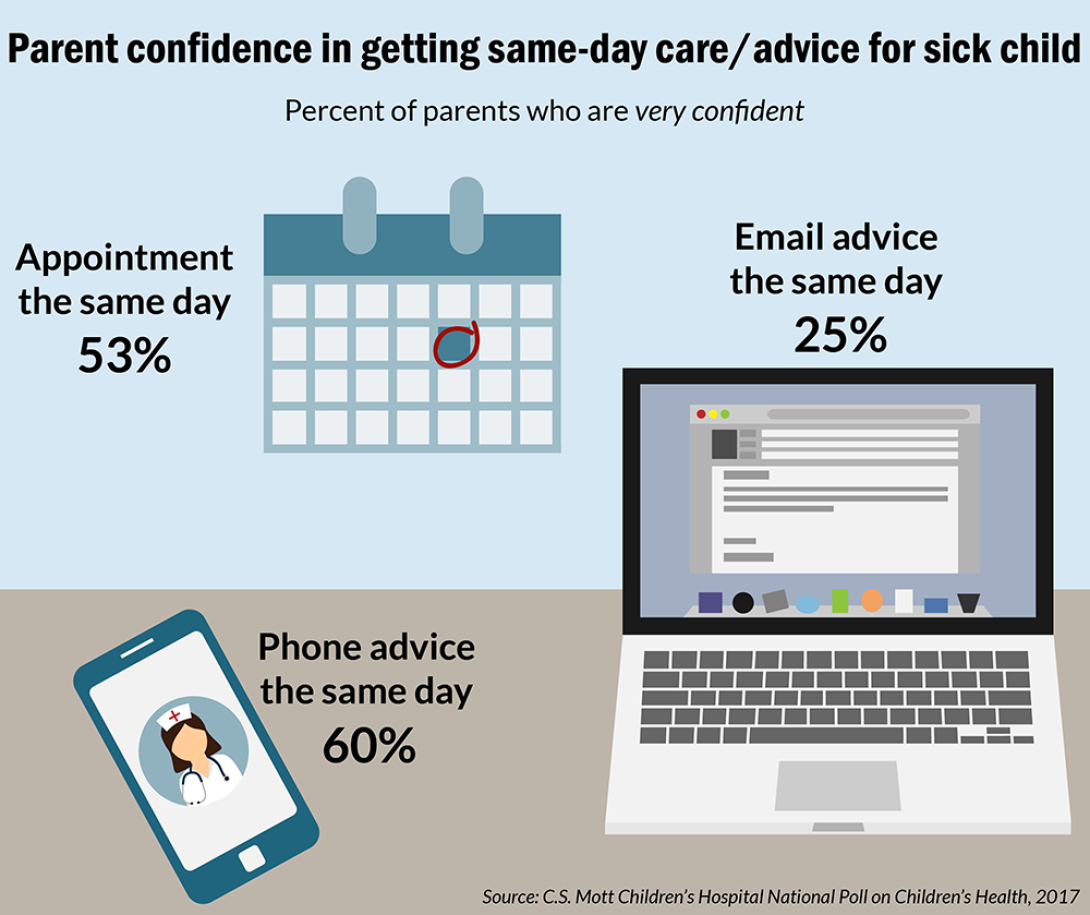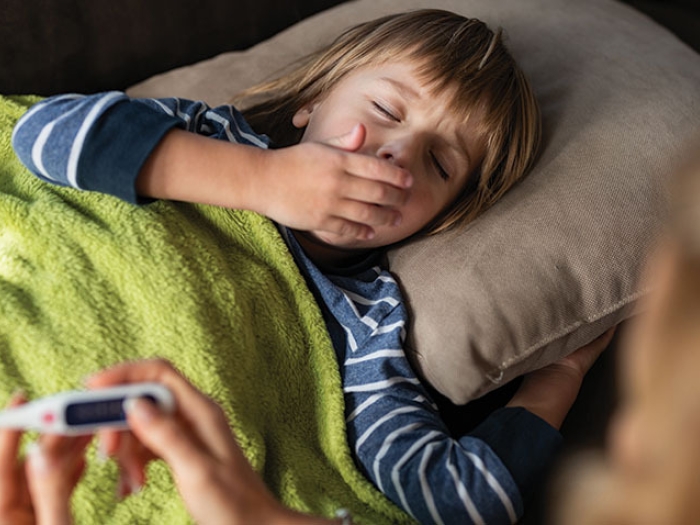A sick kid can leave parents at a crossroads, unsure of how to act. Two Michigan Medicine pediatricians offer advice.
7:00 AM
Author |

When a child is unwell, especially outside of business hours, moms and dads must quickly make a choice: Where should they turn for medical care?
MORE FROM MICHIGAN: Sign up for our weekly newsletter
Although the first response for many is to seek help from a pediatrician, only about half of parents are "very confident" they could get a same-day appointment with their provider.
That's among the findings in the latest University of Michigan C.S. Mott Children's Hospital National Poll examining how families obtain treatment for sick kids on short notice.
And while the majority of poll respondents thought primary care providers were too busy, that isn't always true — particularly in milder circumstances that can be resolved remotely.

"We are always available by phone, 24 hours a day, 365 days a year," says Kelly Orringer, M.D., Mott's director of general pediatrics, noting that most pediatric and family practices also reserve a number slots each day for urgent cases. "We strongly encourage families that a pediatrician's office be the first line of defense unless their child is suffering from a life-threatening emergency."
Among the conditions that demand immediate hospital care or calling 911: difficulty breathing, heavy bleeding, possible broken bones, deep wounds and severe burns.
Still, the Mott poll found, 4 in 10 parents would instead take their child to urgent care, a retail clinic or even an emergency room for minor symptoms such as a fever or sore throat. (For more complaints that can be best handled with a visit to your primary doctor, see this resource from U-M.)
"Parents aren't always using us to the full extent," says Mott pediatrician Sharon Kileny, M.D.
She and Orringer spoke recently about the new poll results and what they mean for families.
What to know about sick-day care
Your primary doctor is here to help: When in doubt, call your pediatrician. Although an appointment might not be available, you will be able to speak to the doctor or a pediatric nurse — most offices offer a triage line for established patients. A quick, remote consultation often is enough for minor ailments such as colds, sore throats, earaches, fevers, vomiting and diarrhea.
Consider delaying your visit: There's nothing wrong with asking for advice, but some parents seek in-person care prematurely. "We see a lot of kids that come in with a few hours of a fever or sore throat; it's hard to tell what's going on because the symptoms haven't had enough time to develop," says Kileny. This, in turn, could prompt return trips to the doctor.
SEE ALSO: How a Pediatrician Helps Her Family Eat Healthfully at Home
"E-communication" may be possible: Response times can vary, but parents may also try using an electronic patient portal to contact their practitioner. Still, "it's not best for same-day concerns," says Orringer. Only 10 percent of Mott respondents said they would pursue the option. The method is ideal, though, for asking general questions and requesting prescription refills.
Know urgent care can suffice — with exceptions: A weekend or after-hours visit to an urgent care or in-house pharmacy clinic might work in a pinch. But parents also should recognize the shortcomings. Notes Orringer: "The level of comfort with pediatric care in the urgent care setting is quite variable." Urgent care clinics also won't know a child's medical history.
Hospitals are for emergencies: Most parents wouldn't rush to the ER to obtain treatment for a runny nose. It does happen, though, and the choice can have consequences. "You're going to be the last one to be triaged," Kileny says. "And your child will be exposed to a lot more communicable illnesses." Beyond those hassles, you'll also be stuck with a much higher bill.

Explore a variety of health care news & stories by visiting the Health Lab home page for more articles.

Department of Communication at Michigan Medicine
Want top health & research news weekly? Sign up for Health Lab’s newsletters today!





